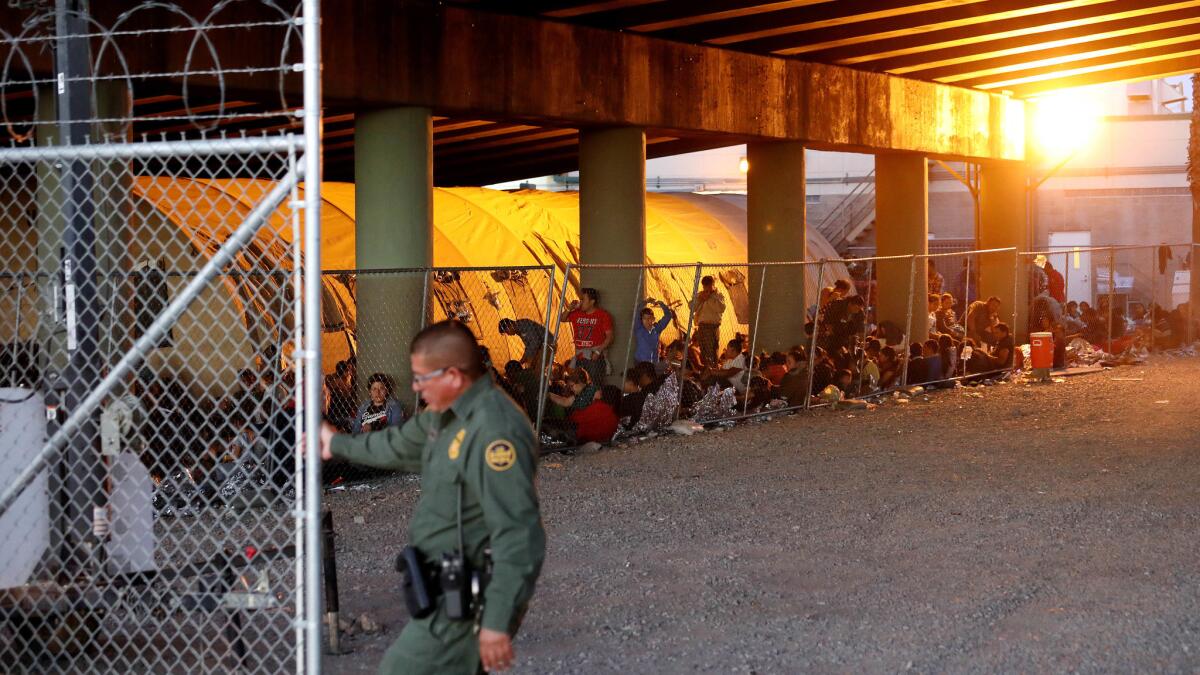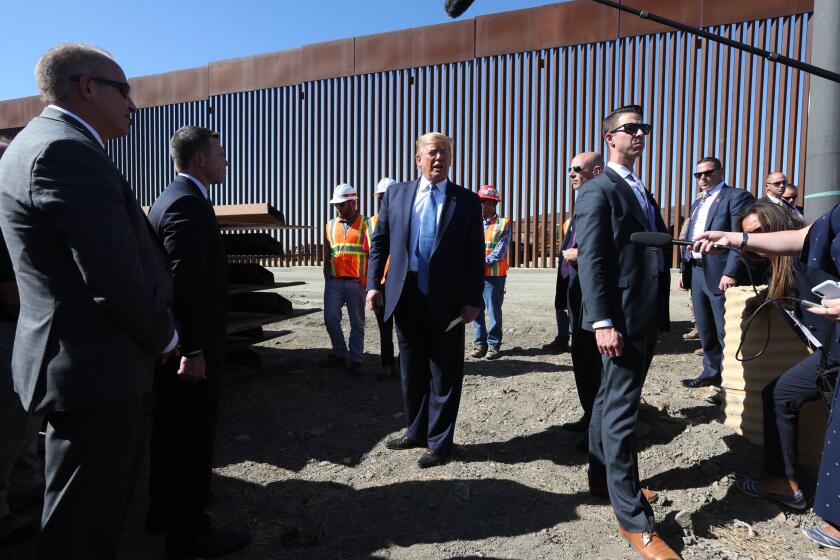Editorial: Trump’s latest efforts to sabotage asylum should remind you why he has to go

As leader of one of the most confused, inconsistent and impulsive administrations in American history, President Trump has at least managed to be consistent in one area: his drive to reduce immigration to as thin a trickle as he can. Last week, he took yet more steps to limit access to the U.S. by people fearing for their safety in their own countries — and once again moved against our history as a nation of refuge, while also seeming to defy U.S. and international laws protecting the rights of the desperate to seek asylum from persecution in their home countries.
The most recent steps come in 161 pages of proposed changes in rules covering a wide swath of asylum law, including potentially barring relief to anyone who has passed through two countries before reaching the U.S. or who spent 14 days or more in one other country prior to arriving here. The administration also wants to bar asylum to anyone who has failed to timely pay taxes due the U.S. government or who has been unlawfully present in the U.S. for a year or more.
It was extremely satisfying Monday when the U.S. Supreme Court sided by California and rejected the Trump Administration’s challenge to the state’s sanctuary law.
It wants immigration judges to weigh someone’s illegal presence in the U.S. against them even though federal law specifically says people can seek asylum by crossing any part of the border and asking for it. And in addition to making fewer people eligible for asylum, it would give officers more power to deny initial asylum claims preemptively, with no need of a court hearing. That would shift an important determination about asylum eligibility from immigration courts to the front-line screeners and is likely a violation of the due-process guarantees that protect everyone in this country, citizen or not.
And on the changes go. The unifying theme here is that Trump, who effectively closed off cross-border access to the U.S. in March as a defense against the spreading coronavirus (too little, too late), wants to permanently limit asylum. Beyond the inherent inhumanity of closing our ears to people asking for protection, the administration is unilaterally undoing decades of U.S. asylum law. Whether Trump has that authority is a matter for the courts, where his lawyers have been spending an awful lot of time defending cockamamie and outrageous moves by the would-be emperor.
The immigration system in this country has been problematic for decades, marred by outdated laws that do not properly address the changing demands of immigration and inconsistent enforcement that, under Trump, has often been inhumane. There are sincere policy discussions to be had over whether we should rebalance the entry criteria to allow more employment-based admissions and reduce the focus on family reunification. Another thorny issue is what to do with people who have lived in the U.S. for more than a decade in most cases while playing a vital role in the economy, forging community bonds and often raising, with partners who are U.S. citizens, American-born children.
Over the last three years, the Trump administration has ignored Congress and, often, federal law, to reshape U.S. immigration policy.
Then there are the Dreamers — people who have lived in the U.S. since arriving as children, who were educated and raised as Americans, and who face deportation often to countries where they don’t speak the language. Congress has failed for years to address that problem — the Dreamers deserve a path to citizenship — and President Obama sought to give them temporary protection through the Deferred Action for Childhood Arrivals program, which Trump has ordered ended despite pledges to “do something” for the Dreamers. The Supreme Court is expected to rule in the next few weeks on whether DACA will survive.
The proper fix here is comprehensive immigration reform. That Congress — well before Trump — has failed to enact such reform is a testament to its general dysfunction. Trump has, incongruously enough, displayed how badly the system needs reforming, but he’s also shown no interest in teaming with Congress to do it. As we have made clear, this president needs to be ousted. We can only hope that the next administration not only undoes these horrific policies and regulations, but also works with Congress to get the progress on immigration reform the nation has been clamoring for for decades.
More to Read
A cure for the common opinion
Get thought-provoking perspectives with our weekly newsletter.
You may occasionally receive promotional content from the Los Angeles Times.











